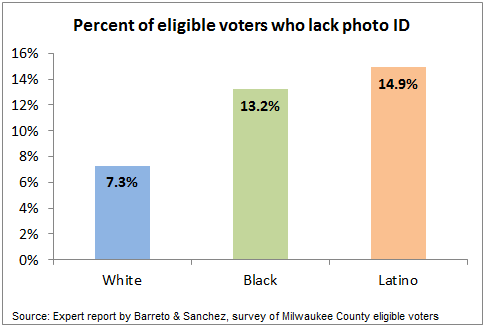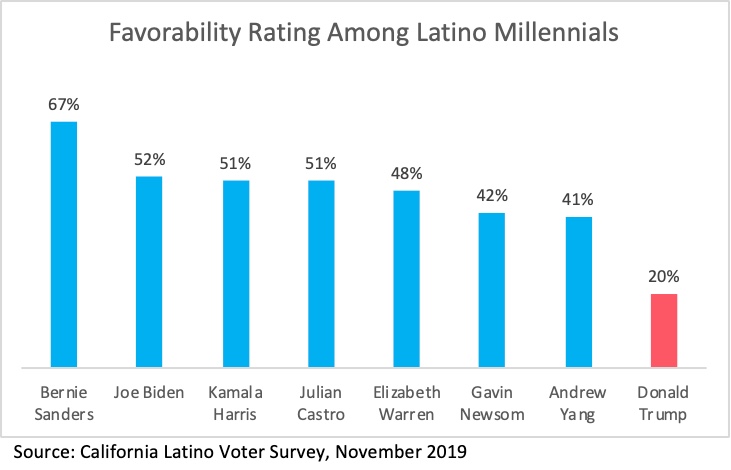A Federal court struck down a controversial law that would require voters in Wisconsin to show photo identification before they cast their ballots. This is the latest ruling regarding voter-ID laws which have become a contentious across the nation. U.S. district judge Lynn Adelman issued a 70-page ruling declaring Wisconsin’s voter identification law is unconstitutional and also violates Section 2 of the Voting Rights Act. According to the ruling, voter identification places an unreasonable burden on people trying to exercise their right to vote and inflicts a disproportionate burden on blacks, Latinos and low-income citizens who are eligible to vote. In his opinion Judge Adelman stated that “it is absolutely clear that Act 23 will prevent more legitimate votes from being cast than fraudulent votes,” and that “the evidence adduced at trial leads to the conclusion that, in Wisconsin, Blacks and Latinos are less likely than whites to possess a qualifying form of photo identification.” (full decision here)
Professors Matt Barreto (UW) and Gabriel Sanchez (UNM) from Latino Decisions conducted research that proved to be pivotal in the case. The report generated by Barreto and Sanchez, on behalf of the ACLU of Wisconsin, was based on a survey conducted to gauge how many eligible voters in Milwaukee County, WI lack the identification required to vote under the new law, and was introduced as an expert report by the plaintiffs and cited extensively in the judge’s opinion. According to the decision issued by Judge Adelman, the survey by Barreto and Sanchez provided critical evidence that black, Latino and low-income voters had lower rates of possession of valid photo ID. Adelman wrote: “The results of the survey showed that a sizable portion of the population of eligible voters in Milwaukee County do not possess either a qualifying form of ID or the documents needed to obtain a qualifying form of ID. Frank Ex. 600 at 16–17. Moreover, the results showed that Black and Latino eligible voters
are less likely than white voters to possess a qualifying form of ID. Specifically, Barreto found that while only 7.3% of eligible white voters lack a qualifying form of ID, 13.2% of eligible African American voters and 14.9% of eligible Latino voters lack a qualifying form of ID. Tr. 304. Accordingly, I conclude that Barreto’s findings, when added to the other evidence in this case, support the conclusion that minorities in Wisconsin are less likely than whites to possess a qualifying ID.”

Beyond current possession of a valid photo ID, the survey by Barreto and Sanchez also investigated whether or not eligible voters in Wisconsin also were in possession of the necessary underlying documents to obtain a valid photo ID in the first place. A critical finding of their expert report was that among those eligible voters who currently lacked a photo ID, a substantial portion also lacked a copy of their official birth certificate or social security card, or other such documents required to obtain even the free state-issued ID card. This additional evidence was cited by Judge Adelman as further proof that blacks and Latinos face additional burdens than do whites. The court ruling stated: “There are additional hurdles that Blacks and Latinos who lack IDs are more likely to have to overcome than whites who lack them. First, as Professor Barreto’s survey indicates, Black and Latino voters who lack a qualifying ID are more likely than white voters to also lack one or more of the underlying documents they would need to obtain a qualifying ID as a first-time applicant.”
Barreto and Sanchez also provided an expert report in Pennsylvania in which a State Court also struck down voter ID in January 2014. In the Pennsylvania ruling, Judge Bernard L. McGinley wrote that he “had a high degree of confidence in Professor Barreto’s survey results and that those results corroborate that hundreds of thousands of voters lack a compliant ID”. Given the large number of voters who were proven to lack ID in the survey by Barreto and Sanchez, the Pennsylvania Commonwealth Court declared the voter ID law unconstitutional: “As a constitutional prerequisite, any voter ID law must contain a mechanism for ensuring liberal access to compliant photo IDs so that the requirement of a photo ID does not disenfranchise valid voter.”


